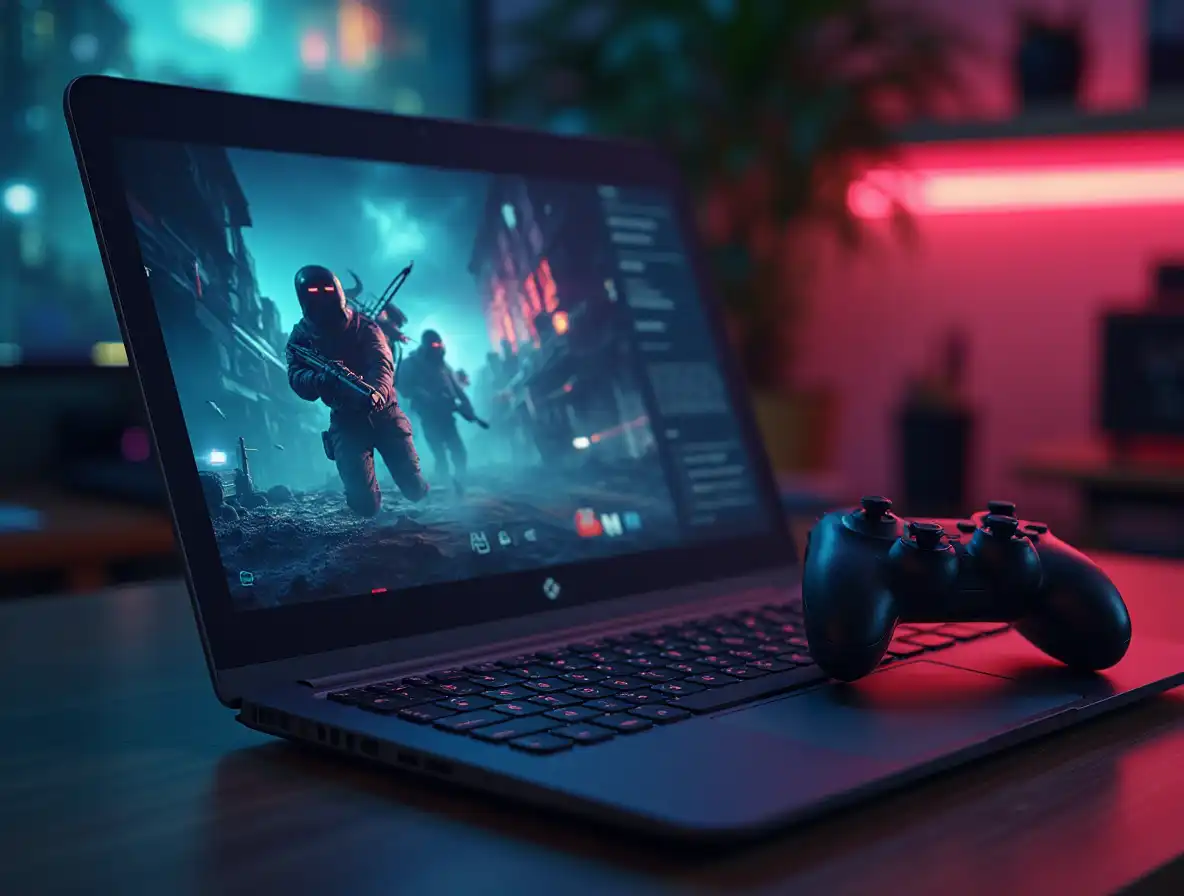
Choosing the right gaming laptop can significantly enhance your gaming experience, but with the multitude of options available, it can feel overwhelming. A good gaming laptop strikes a balance between performance, portability, and value, offering the power needed to handle modern games while fitting within your budget. Key components such as a dedicated graphics card (GPU), a powerful processor (CPU), and sufficient RAM play a crucial role in ensuring smooth gameplay and immersive visuals. Additionally, features like fast SSD storage, a high-refresh-rate display, and efficient cooling systems can make a noticeable difference, especially for competitive or graphically demanding games.
Beyond the internal specifications, factors like build quality, connectivity options, battery life, and brand reputation should not be overlooked. A sturdy, well-cooled laptop ensures durability and consistent performance, while features like Wi-Fi 6 and Thunderbolt 4 ports add to the device’s versatility. Whether you’re a casual gamer, an esports enthusiast, or someone who enjoys AAA titles, understanding your gaming needs and matching them with the right specifications is essential. By carefully evaluating these aspects and researching reviews or benchmarks, you can make an informed decision and invest in a laptop that delivers an enjoyable gaming experience for years to come.
When choosing a good gaming laptop, it’s essential to consider your needs and budget while ensuring the laptop can handle the games you want to play. Here’s a guide to help you evaluate:
1. Key Hardware Specifications
Graphics Card (GPU)
- Dedicated GPU is crucial for gaming performance.
- Look for NVIDIA GeForce RTX 30-series or AMD Radeon RX 6000-series GPUs (or newer).
- Entry-level gaming: RTX 3050/3060.
- Mid-tier: RTX 3070/4060.
- High-end: RTX 3080/4080 or above.
Processor (CPU)
- Intel Core i7/i9 (12th or 13th Gen) or AMD Ryzen 7/9 (6000/7000-series) are recommended.
- Gaming relies more on GPU, but the CPU is vital for multitasking and CPU-intensive games.
RAM
- Minimum: 16GB.
- Ideal: 32GB for future-proofing and heavy multitasking.
Storage
- SSD is a must for fast game load times.
- Minimum: 512GB SSD.
- Ideal: 1TB or SSD + HDD combo for extra storage.
Display
- Resolution: 1080p is standard, but 1440p or 4K is better for a sharper image.
- Refresh Rate: 120Hz or higher for smooth gameplay (144Hz or 240Hz for competitive gaming).
- Panel Type: IPS for better color accuracy and viewing angles.
2. Build Quality and Cooling
- A sturdy build with efficient cooling solutions is essential to prevent overheating during long gaming sessions.
- Look for laptops with multiple cooling fans and large air vents.
3. Portability vs. Performance
- Portable: A lightweight laptop with good battery life (~5–8 hours).
- Performance-focused: Larger, heavier laptops with better cooling and more powerful specs.
4. Connectivity
- Ports: Ensure it has enough USB, HDMI, Ethernet, and headphone ports.
- Thunderbolt 4 or USB-C is great for connecting external displays or accessories.
- Wi-Fi 6/6E or Ethernet for stable internet.
5. Battery Life
- Gaming laptops typically have poor battery life during gameplay (~2–4 hours).
- Some models offer better power efficiency when not gaming (~6–8 hours).
6. Brand and After-Sales Support
- Reputable brands: ASUS (ROG), MSI, Alienware, Lenovo Legion, Acer Predator, HP Omen, and Razer.
- Ensure the brand offers good warranty and customer service in your area.
7. Game Compatibility
- Check the recommended system requirements for the games you plan to play and match the laptop’s specs to them.
8. Upgradability
- Some gaming laptops allow upgrades to RAM and storage. Verify this before purchase.
9. Reviews and Benchmarks
- Look for reviews and performance benchmarks on trusted websites or YouTube.
- Check gaming performance in titles you’ll play, thermals, and durability.

